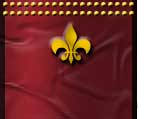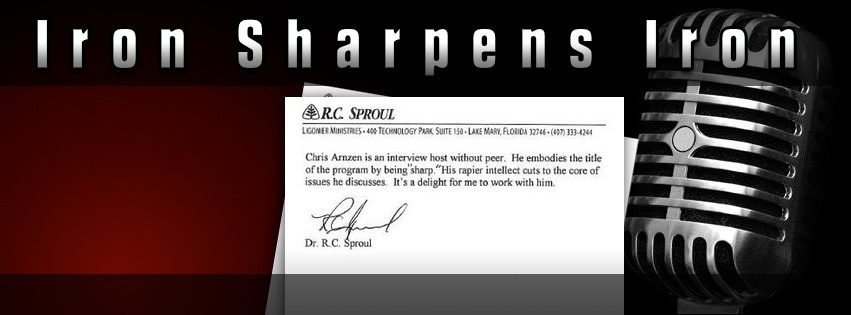




 |
|||||
 |
A BRIEF EXPOSITION OF THE CONSTITUTION OF THE UNITED STATES
John S. Hart![]()
"It is a simple, but an accurate synopsis of the rudiments of the federal government; so well adapted to the apprehension of youth, as to leave nothing further to be desired, in the shape of a political manual."- Chief Justice Gibson.![]()
"In this work the Constitution of the United States is examined and explained in such a manner as to make it plain and intelligible to any youth who is capable of studying the history of his country."- Judge Randall.![]()
"It ought to be adopted at once in every school district throughout the United States."- North American![]()
"As a work for the instruction of the rising generation, it cannot be too highly commended."- Neat's Gazette![]()
"Every man in this country who holds office, whether Executive, Judicial or Legislative, whether under the National Government or any of the State Governments, is bound by oath to support the Constitution of the United States. Every one of the more than two millions who are now entitled to vote, is called upon to decide questions of Constitutional law, as really and truly as is the Supreme Court of the United States. But how many of all that number have ever read the Constitution? In what proportion of our Colleges, Academies, or Common Schools is it studied? In what system of education, whether public or private, in any part of the country, is a knowledge of the Constitution of the country made a requisite for graduation, or for admission from a lower school to a higher one? Ask a number of boys at school almost any reasonable question in Geagraphy or History, and you will see dozens ready to reply without a moment's hesitation. But ask thtm what will be necessary, when they grow up, to entitle them to vote, what constitutes citizenship, what rights a citizen of one State has in another State, or any other simple and obvious question in regard to the Constitution of their country, and you will be met with a profound silence. And is not a knowledge of his immediate personal rights and duties quite as important to the young American, as to be acquainted with a long catalogue of dead kings or distant cities?![]()
The main reason why the study of the Constitution has never yet been made a branch of Common School education is believed to be an entire misapprehension in regard to the nature and difficulty of the study. There are, it is true, not a few passages in the Constitution, the proper construction of which has given rise to much discussion; and there are many nice points arising out of its more obvious provisions, requiring for their solution great natural abilities and profound legal erudition. But it is still true, that the great majority of its clauses are as intelligible, and as easily remembered as most of the studies which now make an essential part in every system of education. What difficulty is there in a boy's learning that a Representative is chosen for two years, while a Senator is chosen for six, that a Representative must be twenty-five years old, while a Senator must be thirty, to know what body has the power to impeach, and what the power to try impeachments, in short to understand and recollect nine out of ten of all the provisions of the Constitution? Is it one whit more difficult than to comprehend and recollect the various details of Geography and History, to give off-hand the position of Timbuctoo or the Tagus, or to know in what year Rome was founded or Csesar slain?![]()
The plan pursued in this little book is in accordance with the views here suggested. There has been no attempt to discuss knotty political questions, or to speculate upon abstract theories of government, but simply to present the Constitution itself, with such questions and answers, as might direct the attention of the learnor to its plain and obvious meaning. The Constitution provides for the duties and rights of every day life, and is written in simple language almost entirely free from technical and profes. sional expressions. Is there any reason why children capable of learning, and teachers capable of teaching History and Geogra phy, might not intelligently study and teach all its material facts and provisions, as they are here presented." - from the Author's Preface![]()
John S. Hart (1810 - 1877) was an American author and educator. His health in early youth was delicate, and his physical strength small. He completed preparatory studies at Wilkes-Barre Academy, and entered the College of New Jersey at Princeton, (now Princeton University), in 1827, and was graduated in 1830, with the highest honors of his class. During the year following his graduation, he taught, as Principal of an Academy at Natchez, Mississippi, and in 1831 returned to Princeton and entered the Theological Seminary. He spent three years there, and was regularly graduated in 1834. During the last two years of his course, he filled the position of Tutor in the college. In 1834 he was elected Adjunct Professor of Ancient Languages in Princeton College, and filled that chair two years. ![]()
Professor Hart was licensed to preach the Gospel by the Presbytery of New Brunswick, August 4, 1835, but having determined, after some years, to devote his life to literary and educational pursuits, his license was, at his own request, withdrawn by the Presbytery, October 19, 1842. ![]()
In 1836, he purchased Edgehill School in Princeton, from Professor E. C. Wines, and resigned his Professorship in the College. He retained the charge of Edgehill School until 1842, when he was selected Principal of Central High School (Philadelphia, Pennsylvania), as well as Professor of Moral, Mental and Political Science[1]. He found this institution in a state of feebleness and placed it on a solid foundation of discipline, accomplishments and popular confidence-making it a representative American institution.![]()
In 1848 he received the degree of LL.D. from the University of Miami. He continued to be Principal of Central High School until 29 October 1858[1], when he resigned in order to become Editor of the periodicals published by the American Sunday School Union, and in this connection he began the Sunday-school Times.![]()
In 1862 he was elected Principal of the New Jersey State Normal School (now The College of New Jersey at Trenton), and held that position with distinguished usefulness and success until February 1871. From 1864 to 1870 he also gave courses of lectures on English Literature in Princeton College. In 1872 he was elected Professor of Belles Lettres and English Literature in Princeton College, which chair he filled two years, returning near the end of 1874 to Philadelphia, where he resided until his death, engaged in literary pursuits. During the months preceding his last illness, he had been delivering a course of popular and instructive lectures on the works of Shakespeare.![]()
About two months before his death, he suffered a severe fall upon an icy pavement in Chestnut Street, breaking his hip-bone and inflicting internal injuries. After much severe suffering, he died in Philadelphia, March 26, 1877, at the age of sixty-eight. Prof. Hart was a man of quiet and retiring manners, yet social and sunny in his temperament, an enthusiast in the cause of education, a devoted Sabbath-school worker, of elegant culture, accurate and wide scholarship, author of many volumes, and possessing great force and earnestness of mind. But above all, he was an humble, consistent and devout Christian, always seeking, like his Master, to do good.![]()
![]()
AMERICAN HERITAGE FIVE-PACK![]()
*OUR LIVES, OUR FORTUNES AND OUR SACRED HONOR by Charles Goodrich![]()
*A THEOLOGICAL INTERPRETATION OF AMERICAN HISTORY by Gregg Singer![]()
*LET THE CANNON BLAZE AWAY: Lectures on the Centennial of American Independence by Joseph Thompson![]()
*THE FORGOTTEN HEROES OF LIBERTY: The Chaplains and Clergy of the American Revolution by J.T. Headley![]()
*A BRIEF EXPOSITION OF THE CONSTITUTION OF THE UNITED STATES by John Hart![]()
ah5 CGUG![]()
33% off![]() SGCB Price: $9.95 (list price $15.00)
SGCB Price: $9.95 (list price $15.00)![]()
ORDER WITH OUR 'AMERICAN HISTORY FIVE-PACK'![]() SGCB Price: $67.50 (list price $135.00)
SGCB Price: $67.50 (list price $135.00)
50% DISCOUNT WHEN ORDERING ALL FIVE TITLES![]()
Additional Information
• Biographical Sketch
